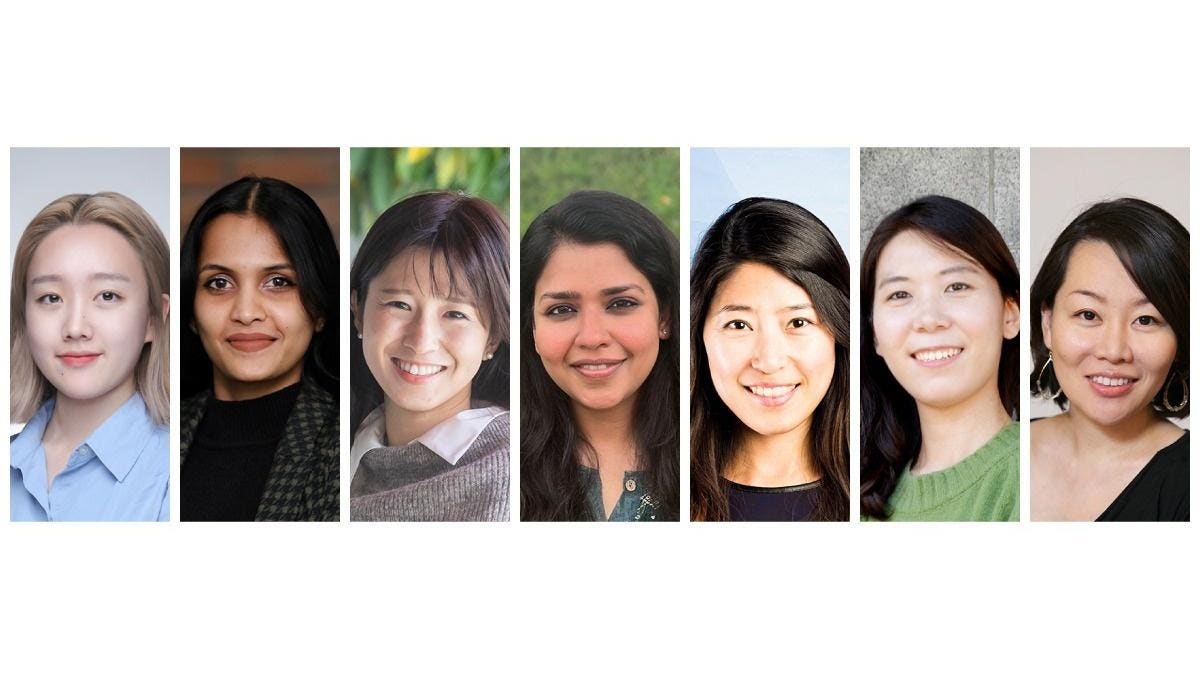Google’s fund for female founders in the Asia-Pacific region has picked its first batch of startups, all in the hot field of artificial intelligence, that will receive an injection of cash and mentorship.
The fund, called the Google for Startups Women Founders Fund, was launched in August and is managed by Google for Startups, the tech giant’s startup support arm. Each startup will receive $100,000 in financing without giving up equity, as well as mentorship and networking assistance.
Mike Kim, the Singapore-based Asia-Pacific head of Google for Startups, exclusively revealed to Forbes Asia the first batch of female-founded startups:
Fundamento (India): Cofounded by Megha Aggarwal, a former Morgan Stanley investment banker and Oxford grad, the three-year-old startup uses generative AI to automate customer inquiries. “Megha recognized two things: One, the majority of folks who are calling have similar problems, so a lot of this can be automated. And two, she also felt that the amount of pressure felt by customer service workers around the world is driving unhealthy mental health issues,” says Kim in a video interview.
Ikura (Japan): The two-year-old startup provides tailored, off-the-beaten-path travel recommendations using AI. “Instead of everyone going to Shibuya or everyone going to that one shrine in Kyoto, [cofounder Eiko Nakazawa] felt that not only is that not environmentally friendly, but most of the time people are unaware of the other things that are available,” says Kim. “Not only will this help small businesses, but it will also help the environment because not everyone will be going to these few [tourist] spots.”
Kai Health (South Korea): Founded and led by Hyejun Lee, who studied medicine at Seoul National University, Kai Health uses AI to analyze embryo images and clinical data to improve pregnancy success rates for in vitro fertilization (IVF).
MetaShop (India): The one-and-a-half-year-old startup can create a 3D model of a product by using videos, allowing companies to provide more detailed product images for online sales.
Munice (South Korea): Its app, called Miracle Night, uses AI to analyze health data to produce personalized sleep-inducing sounds to help improve sleep quality.
Yuimedi (Japan): Led by a former McKinsey consultant, Yuimedi uses AI to clean medical data so that healthcare providers can better utilize their vast troves of data. AI algorithms can process data in medical records, analyzing patterns to recommend treatments.
Zenerate (South Korea): Cofounded by Jamie Jeong, who holds a doctorate from Caltech, Zenerate uses AI to quickly generate building designs. Kim says Zenerate’s designs can help increase the supply of affordable housing in South Korea, where there are concerns of a home shortage as developers are hesitant to start projects due to rising costs.
The seven were selected from hundreds of applicants. Kim previously told Forbes Asia the fund will focus on startups in AI for now because the technology is rapidly accelerating, so it’s important for underrepresented minorities and women to be part of the development process and not be left behind.
“The reason we focused on AI for this particular fund is because it spans across so many different industries,” he says. “In the future, every single technology or industry that we work with, whether it’s healthcare, finance, even down to hardware, will have some piece of AI to make it more efficient and to make the user experience better.”
AI featured prominently on this year’s Forbes Asia 100 to Watch list. Out of the 100 small companies and startups that made the list, 25 use AI technology. Those include Abacus Digital in Thailand, which developed an AI-powered app to quickly provide loans to mostly underbanked customers; Singapore’s Bot MD, whose AI-powered chat assistants can help medical professionals look up information, monitor their patients and provide real-time alerts about their health; and Nearthlab in South Korea, which uses AI and autonomous drones to monitor wind farms.
MORE FROM FORBES
Read the full article here





